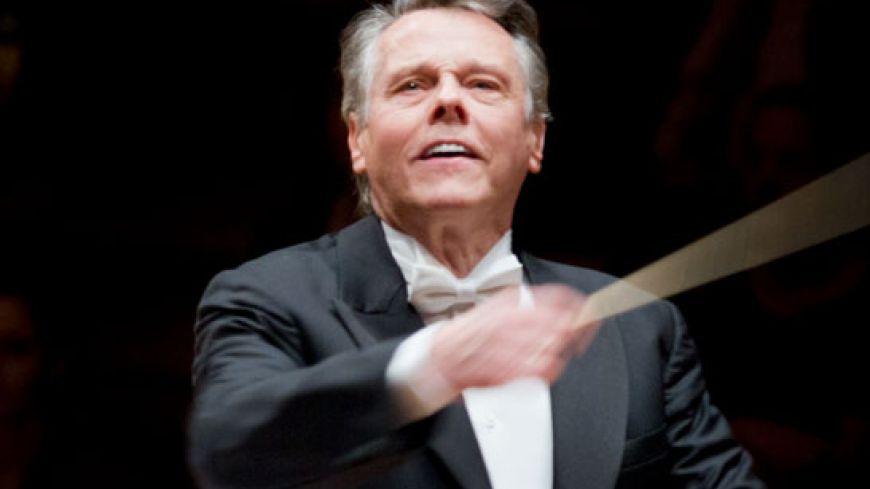
There is an old saying “from the sublime to the ridiculous” but at this year’s Edinburgh Festival, for this reviewer at least, it was the precise opposite.
After the ridiculous idiocy of a distorted Fidelio – the worst opera production encountered in some 60 years of reviewing – this performance of Mahler’s monumental “Resurrection” symphony touched on the sublime. From a funereal start, a highly personal journey through a lifetime of emotions, vicissitudes and happiness, led to an overwhelming, triumphant finale affirming salvation and life after death.
Conductor Maris Jansons was decisive, almost brusque at the outset, achieving a riot of sound but so adept that later pianissimo passages were so delicate as to be barely audible. The Bavarian Radio Symphony Orchestra is widely recognised as one of the world’s best and has a formidable international touring history. With around 110 players at full strength, it filled the Usher Hall platform. A larger than usual percussion section stretched across the whole width of the platform, starting with an enormous gong at one end and an array of large brass bells at the other.
Percussion has a much larger role than usual in this particular Mahler work. Add the rest of the orchestra at full pitch and the hall was filled with an almost frightening volume of sound. In sharp contrast came soft, tender passages in sections portraying happier moments. Mahler’s journey reaches is crucial point in the 4th movement with the entry of the human voice. Two singers had been sitting immobile, almost hidden, amid the orchestra, until mezzo-soprano Gerhild Romberger sang the first line of the folk-poem “Urlicht” (Primeval light) to a tune reprised from an earlier Mahler work. A dialogue with the orchestra climaxes with the words “I am from God and will return to God”.
The Edinburgh Festival Chorus then carries the main thrust of the final, singing the opening lines of the Klopstock poem “Resurrection”. There is no doubt that the poem inspired Mahler but he used only the first eight lines and the rest of the hymn words were his own.
“Rise, yes you will rise again,” are the opening words for the chorus. Interspersed with the chorus, Romberger is joined by soprano Gena Kuhmeier in an expanded version of “Urlicht” before the full orchestra chorus and organ repeat “Rise you will rise again” followed by the prophesy: “What you have conquered will bear you to God.” Strident brass and massive clamour from gongs and bells end it all.
Not a wrong note or false emphasis was detectable in the entire 90 minutes of music. The large string section was exceptional, the off-stage players were exact in timing their contributions and the Festival Chorus -- singing in German – were, as expected, in full voice.
The capacity audience erupted into lengthy, vociferous applause after brief stunned silence at the end., Conductor, soloists and the Festival Chorus chorus master were brought back on stage repeatedly.
There have been some grumbles recently that the 70-year-old Jansons lacks the verve and insight that characterised his earlier career. This festival offering of a Mahler masterpiece stands tall in the company of praised performances and recordings by other more famous orchestras and lauded conductors.
There is one caveat. The on-stage organ replacement lacked the sonority that the unused Usher Hall organ would have provided. On this occasion it just provided an impressive back-drop to the ranks of the Festival Chorus
.
Event: Monday 12 August 2013 at 8pm

